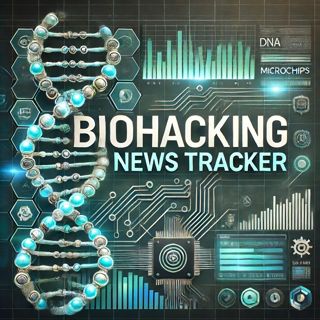In the evolving landscape of medical health and wellness, a dynamic shift is noticeable among practicing groups that are integrating cutting-edge approaches like biohacking into their services. A striking example is ChristiMD Medical Group, which has recently rebranded itself as LifeSculpt by ChristiMD. This repositioning underscores a growing industry trend where medical providers are not just treating illnesses but are actively enhancing life quality through technology and innovative practices.Founded by Dr. Christi Pramudji-Dawe, LifeSculpt by ChristiMD now specializes in a niche yet expanding area of healthcare that includes longevity, biohacking, aesthetics, and urogynecological health. This transformation reflects a broader interest in leveraging medical science to optimize human performance and well-being—a field often termed as 'biohacking'. Typically, biohacking involves a combination of medical, nutritional, physical, and electronic techniques to manipulate the body's natural systems to enhance performance, vitality, and health.Biohacking is no longer a fringe activity but is increasingly mainstream, as evidenced by its adoption by high-profile businesses like Equinox. Equinox, known for its high-end fitness clubs, has ventured into the longevity market with a new program reportedly priced at $40,000, aimed at helping its members extend their life spans. The program promises access to the latest advancements and techniques in longevity science, once again highlighting the commercial appeal and growing consumer interest in biohacking.At its core, biohacking can range from simple lifestyle and dietary changes to extensive genetic editing and implant technology. It taps into the human aspiration to not only extend lifespan but also to improve the quality of life and physical capabilities. As companies like LifeSculpt by ChristiMD adopt these practices, they cater to a clientele that is increasingly informed and enthusiastic about the potential to transform their health through science.As the interest in biohacking grows, so does the conversation around its ethical, legal, and health implications. The accessibility of biohacking modalities raises important questions about equality, safety, and the nature of human enhancement. As this field evolves, regulatory frameworks will likely be challenged to keep pace with the speed of developments.Therefore, the transition of ChristiMD Medical Group to LifeSculpt by ChristiMD and the introduction of high-cost longevity programs by fitness giants like Equinox signify a shift towards a future where healthcare meets lifestyle optimization, driven by advancements in medical technology and a deeper understanding of human biology. This blend of technology, medicine, and consumer health is not just about treating the sick but about enhancing the human experience, signaling a new era in human health development.This content was created in partnership and with the help of Artificial Intelligence AI
17 Juni 20243min
